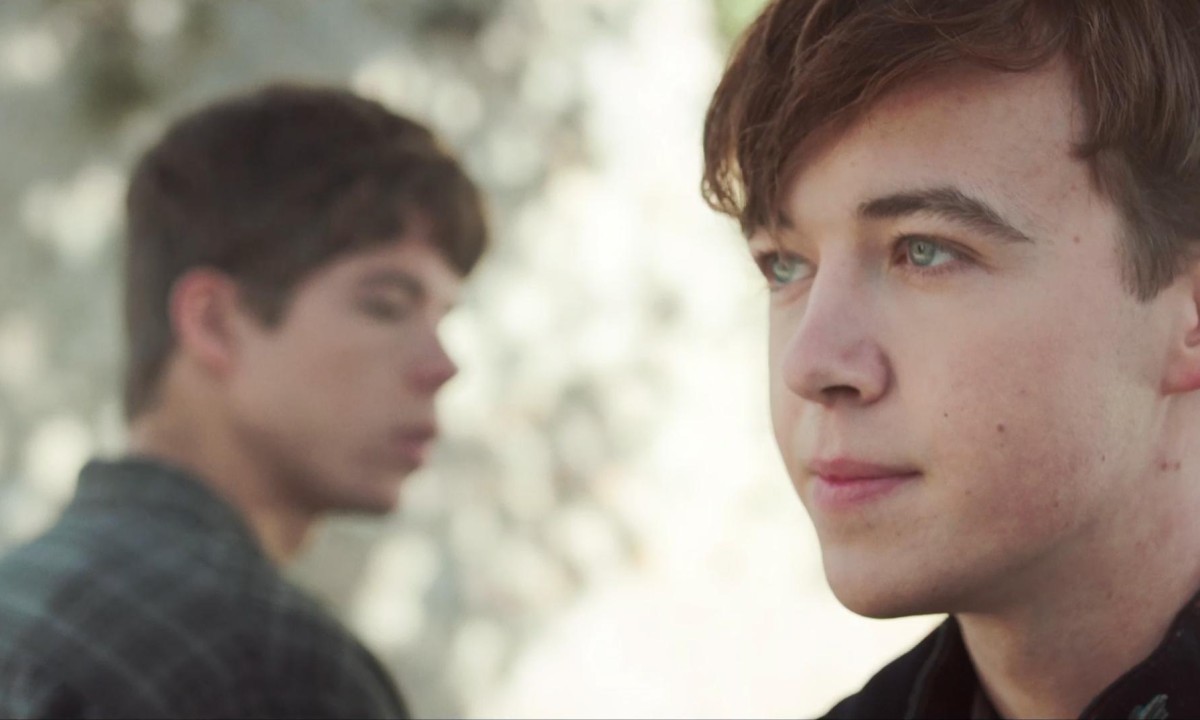Departure [2015] is about a seemingly normal family that falls apart on holiday in the south of France.
Takes All Kinds. Departure features only four characters, so it’s natural to expect that these characters would be fully developed, nuanced and relatable. While they occasionally reach moments that advance them in a meaningful way, there are often problems that seem to stem from the writing that prevents any one person from feeling too well rounded. Instead, the characters the actors are supposed to portray are merely there for the sake of the story. There is a set guideline to the movie, and the characters are needed in their spots to move from scene to scene. This would be much less of an issue if the steps they took to get there felt less contrived and more organic. There are simply too many moments in the film that left me wondering if it was the characters acting bizarre, or if my experiences were so limited that I couldn’t relate. With so few characters, there is pressure to define them, provide them with qualities and traits that make them stand out, and Steggall does manage to achieve this. Clément comes off as aloof and insecure while Elliot is mature and sensitive. The two find relative comfort in each other’s company, despite Clément obvious uncertainty about how comfortable he is with where the relationship may take him. Elliot’s parents have their own role and story in the film, and it pairs well with the story of Eliot and Clément. While one relationship is building, another crumbles. There is a sadness and loneliness that runs through these characters, all longing for something more, but their solidarity offers no relief. Instead, the friction becomes explosive and the emotions run wild. Respectable performances, highlighted by a convincing Alex Lawther, help hold the viewer through some less than respectable dialogue. While it’s by no means consistently bad, the quality seems to dip sporadically. It’s luckily of little consequence as the film carries itself well and manages to offer a complete story with a satisfying ending.
Eye of the Beholder. On a technical level, the film does achieve a bit more than what the acting and writing provide. Departure has its share of picturesque moments that linger with you. When exposing locations and establishing moments in the story, the photography is warm and inviting, pulling in the colors of late summer. This is especially welcome considering the sound is less than stellar. A plain and uninspired song plays throughout the film and wears out its welcome quickly. A moment near the back end of the film uses an opera score, and it produces a much richer and more enjoyable experience. While the use of opera is partly reincorporation, it provided a glimpse into what could have been. This is the largest issue with the film: it doesn’t push hard enough. It provided some good performances and a complete story, but it doesn’t reinvent the wheel or even try to. The movie isn’t exactly a drama, or a romance or even a coming-of-age tale. It’s a mild blend of all three without ever really exploring the opportunities any one genre would afford. It’s most standout feature is its lack of standout features, which leaves you with a lukewarm feeling. It’s as if the good and the bad are canceling each other out and eventually you’re left judging the bits and pieces that are left over, scattered throughout the film’s 109-minute runtime. A for the subject matter, location and events, I cannot relate to it as a coming of age story in enough ways for it to be meaningful to me. Additionally, as a romance story, I felt unconvinced by the lack of tension and the seemingly oppositional characters. Lastly, as a drama, it almost loses itself with a lack of subtlety. For Andrew Stegall’s feature film debut, there is much to be desired, but it’s only fair to applaud the good and forgive the bad because in the end I felt great sympathy for our characters and perhaps a better understanding of why people act as irrationally as they sometimes do. Love and a lack thereof can sometimes push us to extremes, and even reduce us to settle for mediocrity.
Departure takes aim at multiple genres and complicated emotions while keeping things simple and within conventional boundaries.

